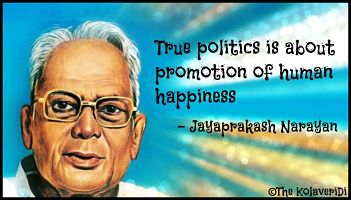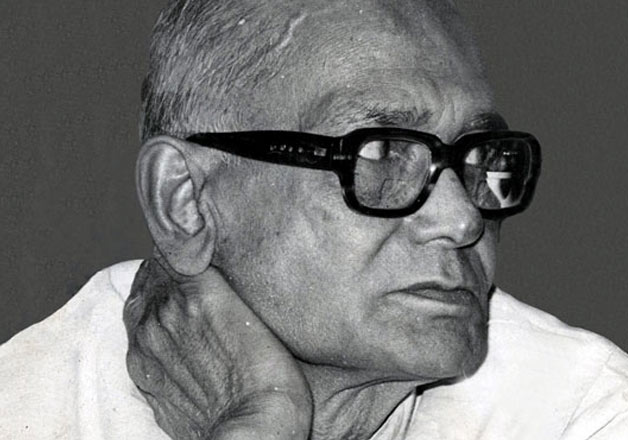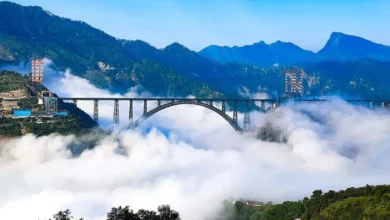
JP-The Real Lok Nayak of India
Thomas Hobbes, a famous British philosopher once stated, ‘Man is selfish and self-seeking by nature’. This statement is true in a number of cases. But Jayaprakash Narayan (JP) was an exception. Service of the common man in India was his life’s main goal.
JP struggled to achieve the noble ideals of justice, equality and freedom in order to continue the cause of social change. He consequently became to be one of the famous political thinkers of the 20th century. He also contributed a lot in the pre and post-independence India.
JP participated in various freedom struggle movements like Dandi march, civil disobedience movement and Quit India movement etc. Spreading socialistic ideas, bhoodan movement and Sarvodaya movement were his major contributions to the post-independent India.

Jaya Prakash Narayan whose name means, “Victory to the light” was born on October 11, 1902, in Bihar, the village of Sitabdiyara. He was the leader of “Total Revolution” and a great warrior of Indian Freedom Struggle. He was furthermore a Marxist turned socialist Gandhinian and a life-long Ahinshak rebel Loknayak.
JP’s father who was working as an officer in the canal department wanted his son also to be in government service. For education, therefore, JP was sent to Patna. Hence, it was this school that proved to be an important factor in his career. In addition to that there, JP came into contact with the freedom movement activists through his association with Saraswathi Bhawan, the centre for national leaders. This inspired him to think more about national problems. However, studies were the thing in which greater part of his life was spent on.
The period from 1914 to 1922, proved to be of great importance in the life of JP for some most noteworthy reasons. Firstly, Mahatma Gandhi returned to India after his non-violent methods of non-cooperation and Satyagraha against the government of South Africa for practising racial discrimination.
Contributions of JP to Pre-Independence India
Jaya Prakash was a believer of the Communist school of thought. Hence, for him, it was not enough that the nation attains political freedom. To him, the definition of freedom was freedom from hunger, poverty and ignorance.
1. He followed Gandhi when after all Congressmen were arrested, he led the movement and attracted the youths
After the DANDI MARCH, most of the Congress leaders were arrested. Jaya Prakash immediately set up an underground office at Bombay to continue Congress work. Also, he travelled all over the nation, printing, distributing and organizing secret meetings.
2. He established Congress Socialist Party in 1934.
In 1934, Jaya Prakash and his friends formed the Congress Socialist Party under the Presidentship of Acharya Narendra Deva and secretaryship of Jaya Prakash himself. The group intended to function as the Socialist wing within the Congress party and hence, aimed to make socialism the goal of the Congress.He was an active member of Congress Socialist Party formed to spread the socialistic principles in the country-side to help the greater independence movement.
3. Azad Dasta
As a follower of Marxism, he accepted violent way of revolution for freedom movement and established Azad Dasta which was a group of violent revolutionaries for freedom movement.
4. Socialism
He popularized the idea of socialism in India beginning from the 1930s, along with great socialists like Swami Narendra Dev, Pandit Nehru, Netaji and Gandhiji;
In the Nasik jail, he met politicians and reformers like Ram Manohar Lohia, Ashoka Mehta, Minoo Masani, P. Dantawala and Achyut Patwardhan. They all were impatient for freedom and agreed to steer the Congress toward the goal of socialism. Jayaprakash was released from jail in 1933. In his book “Why Socialism?” (1932), Jaya Prakash explained why socialism would be right for India. For his idealism, he acted as an inspiration for the youth.
5. Civil Disobedience Movement
He was imprisoned by the British again in 1939 for his opposition to Indian participation in World War II on the side of Britain, but he subsequently made a dramatic escape and for a short time tried to organize violent resistance to the government before his recapture in 1943, And participated in Civil Disobedience Movement.
Contributions of JP to Post – Independence India
The Socialists lost to the Congress in the 1952 elections. Nehru invited Jaya Prakash to join the Cabinet. When Nehru could give no assurances on the implementation of Jaya Prakash 14 point plan to reform the Constitution, the Administration and Judicial system, nationalize the banks, redistribute land to the landless, revive Swadeshi, and set up cooperatives, Jaya Prakash refused the offer.
1) He started SARVODAYA movement for development of all across caste, religion, class and gender.
In the early periods soon after independence, he formulated the Sarvodaya plans in 1950 based on Gandhian principles and Marxist principles to chart a future map for India’s development;
2)He also supported Vinoba Bhave in his Bhudan movement.
On April 19, 1954, Jaya Prakash Narayan declared in Gaya that he was dedicating his life (Jeevandan) to Vinoba Bhave`s Sarvodaya movement and its Bhoodan campaign, which promoted distribution of lands to Harijans (untouchables). He gave up his land, set up an ashram in Hazaribagh, and worked towards uplifting the village.
3)After independence, he gave ‘Sarvodaya Plan’ for economic upliftment of all classes.
Jaya Prakash believed that every village should be like a small republic – politically independent and capable of taking its own decisions. It was a marriage of Gandhian-Indian concepts and modern Western democracy. His thoughtful, well-researched and brilliant book, “The Reconstruction of Indian Polity,” won him the Ramon Magsaysay Award.
4) Total revolution
JP’s most enduring contribution to post independent India was his call for Total Revolution against the misrule of the Indira Gandhi led Congress Central Government.
During the 1975 emergency, he led a massive popular movement to evoke people against the coercive emergency and led support to the Janta Party in reviving democracy;
5)He found the People’s Union for Civil Liberties in 1976 to uphold Civil LIberties.
In his final stages of life, he took to political activism and pledged to save India’s democracy when he formed a number of NGOs – People’s Union for civil liberties and Citizens for democracy. Movements against inflation, unemployment and corruption IN 1970’S JP played an important role.
6. Opposition
After independence and the death of Mahatma Gandhi, Jaya Prakash Narayan, Acharya Narendra Dev and Basawon Singh (Sinha) looked after the CSP out of Congress to become the opposition Socialist Party, which later took the name, Praja Socialist Party.
His ideas:
SOCIALISM
Jayaprakash Narayan viewed socialism in Indian perspective. He viewed “Socialism is a system of social reconstruction. Socialism is not a code of personal conduct; nor is it a hot-house growth.
‘It means to change in the socio-economic and political life of the country –where there will be no inequality in possession and no exploitation‘.
Fora society with balanced growth from all sides this was important.
CONCEPT OF SARVODAYA
Jayaprakash made a voyage from socialism to Sarvodaya in the fifties. Gandhi started The Sarvodaya Movement in pre-independent India and spearheaded by Vinoba Bhave in the post-independence era. Jayaprakash’s Sarvodaya implies a new order in which the society will be classless and stateless; it will be a political system in which Lokniti will replace rajneeti it will be ‘peoples’ socialism., which will ensure not only freedom and equality but also peace and eternity. Its ultimate aim is to establish ruler and the ruled will be merged in the individual”.
PARTICIPATORY DEMOCRACY
His concept of participatory and partyless democracy found detailed elaboration in his pamphlet ‘swaraj for the people’ published in 1961. He said that Indians followed western democracy, where the government is based on the consent of the people without any participation in it. He wanted and advocated the participation of the people in the polity and governance this would require a thoroughgoing system of political as well as economic decentralization.
CONCEPT OF TOTAL REVOLUTION
The clarion call for ‘Total Revolution’ was the last revolutionary quest of Jayaprakash Narayan. It is the only indigenous revolution in the post-independence era. Though a Sarvodaya activist, a revolutionary Jayaprakash could not remain indifferent to the crumbling of Indian polity. Corruption, manipulation, exploitation, social discrimination, unemployment and rise of authoritarianism provoked an old guard of freedom movement like Jayaprakash to launch a total revolution in the post-independence polity.
Jayaprakash Narayan is called by people as ‘Lok Nayak’ which means ‘Leader of the people’.
He had an enormous influence in shaping the Socialist movement in India. He along with Ram Manohar Lohia set an example of opposition in democracy influencing constructively the ruling power from Nehru to Indira. Though he had never been the part of a government. His contribution in constructive opposition both inside and outside the parliament was great for the development of Indian democracy.
He wanted the grass root to be at the centre of welfare and decision making. A socialist pattern-well versed influence of the Gandhi’s ideology. Bharat Ratna was awarded to him for his contributions. JP’s life has been a dedication to the cause of democracy. Even as he was a Marxist in his initial years. As a Gandhian, he tried his best to keep alive the principles that inspired the movement for India’s freedom struggle. Gandhi was not lured by power, and just like him, JP was also not lured by power.
Jayaprakash Narayan has many hospitals, bridges etc. named after him, but we still need to acknowledge and follow his ideals of equality and justice and the concept of Sarvodaya.
“Shinghasan Khali Karo Ki Janata Aati Hai” when this line was written by Shri Ramdhari Singh ‘Dinkar’. 74-year-old Jaiprakash Narayan used this line. It motivated Indians all over the world to fight against corruption, rigging of the election, unemployment and so-called undemocratic government.




